Did you know petroleum engineering is one of the highest-paying engineering degrees? It has an average salary of $101,086. This career is very appealing to ambitious students who want to learn about energy exploration and production.
To prepare for petroleum engineering entrance exams, students need a solid plan and deep knowledge. They must understand key subjects like geology, reservoir engineering, drilling, and production. This knowledge is crucial for passing these tough exams.
Preparing for these exams means mastering many important areas. Students should work on their math skills, technical knowledge, and problem-solving abilities. These skills are key to standing out in this competitive field.
Key Takeaways
- Understand the comprehensive nature of petroleum engineering entrance exams
- Develop a structured study plan targeting critical subject areas
- Practice extensively in mathematics and technical subjects
- Utilize multiple study resources and mock tests
- Build a strong foundation in geological and engineering concepts
- Allocate dedicated study time for exam preparation
- Stay updated with current industry knowledge and exam trends
Understanding Petroleum Engineering Entrance Exam Basics
Getting ready for petroleum engineering entrance exams needs careful planning and a deep understanding. Students aiming for this field must grasp the details of different exam strategies.
Starting with petroleum engineering test practice means finding the right exams and knowing their formats. Various places and schools have their own tests. These exams check students’ technical skills and problem-solving abilities.
Types of Entrance Exams
There are many entrance exams for petroleum engineering students. In India, the Graduate Aptitude Test in Engineering (GATE) is a top choice. Around the world, universities and groups have their own tests to see who’s ready.
Exam Structure and Format
| Exam Type | Total Questions | Duration | Marking Scheme |
|---|---|---|---|
| GATE Petroleum Engineering | 65 questions | 3 hours | 100 total marks |
| JEE Advanced | 72 questions | 3 hours | 396 total marks |
Eligibility Requirements and Prerequisites
Students must meet certain academic standards for these exams. Usually, they need a minimum 55% aggregate in 10+2 science stream. Being strong in physics, chemistry, and math is key.
Getting ready for exams means focusing on key subjects, practicing with sample papers, and learning how to manage time and solve problems.
Core Subject Areas to Master for Success
Students aiming for petroleum engineering need to grasp key subjects. These are vital for entrance exams and future success. The syllabus covers a wide range of topics, mixing theory with real-world use.
Important areas for petroleum engineering include basic math and science. Students should work hard to understand key subjects like:
| Mathematics | Engineering Sciences | Petroleum Specific Subjects |
|---|---|---|
| Calculus | Fluid Mechanics | Petroleum Geology |
| Linear Algebra | Thermodynamics | Reservoir Characteristics |
| Differential Equations | Process Instrumentation | Production Techniques |
| Probability | Computational Methods | Exploration Methods |
Topics like numerical methods, complex variables, and petroleum formation evaluation are key. Students need strong analytical skills in math and engineering to do well in exams.
Knowing complex subjects like reservoir study, oil recovery, and health safety in the petroleum industry is a big plus. It helps in entrance exams and future studies.
Essential Study Materials and Resources
Getting ready for petroleum engineering programs means picking the right study materials. Students need to choose materials that cover all important parts of the entrance exams.
It’s key to use a variety of study materials. They should give deep knowledge and real-world insights into petroleum engineering. With about 30 universities offering these programs in the U.S., students need strong study plans.
Recommended Textbooks
Choosing the best textbooks is vital for exam prep. Here are some top picks:
- Petroleum Formation Evaluation by Edward J. Lynch
- Applied Geophysics by Telford, W.M
- Handbook of Petroleum and Natural Gas Engineering by William C Lyons
Online Learning Platforms
Online resources have changed how we study for petroleum engineering. Groups like the Society of Petroleum Engineers offer online courses and webinars. These add to what you learn from books.
Practice Test Materials
Practice tests are key for getting good at entrance exams. Look for resources that mimic real exams, especially for big tests like the Graduate Aptitude Test in Engineering (GATE).
| Resource Type | Key Benefits |
|---|---|
| Professional Association Courses | Learning from experts in the field |
| Online Practice Exams | Get feedback on your performance |
| Specialized Textbooks | Get a deep understanding of subjects |
Using these study tools, future petroleum engineers can really get to know the field. This helps them do well in tough admissions.
How Can Students Prepare for Petroleum Engineering Entrance Exams
Getting ready for petroleum engineering entrance exams needs a solid plan. Students must make a detailed study schedule that covers all important exam topics. Knowing how to prepare is key to doing well.
Start by making a study schedule. Spend time on key subjects like math, geology, and engineering basics. Set aside hours for each subject to keep learning balanced.
Important strategies include:
- Mastering previous year question papers
- Developing strong problem-solving skills
- Using active learning techniques
- Creating comprehensive study notes
Mock tests are vital for practice. Practice under timed conditions to boost speed and accuracy. For example, the GATE Petroleum Engineering Exam has 65 questions with specific marks, needing a good strategy.
| Exam Preparation Component | Recommended Time Allocation |
|---|---|
| Core Subject Study | 50-60% of study time |
| Mock Tests | 20-25% of study time |
| Revision | 15-20% of study time |
Keep motivated by setting achievable goals and tracking your progress. Remember, steady effort and smart prep are essential for passing petroleum engineering entrance exams.
Developing a Strategic Study Timeline
Time management is key for petroleum engineering exam prep. Students must plan out their study schedule well. A good plan can lead to success in tough exams.
For petroleum engineering exams, a smart study plan is essential. It should fit the time you have to study. This way, you can learn a lot and keep moving forward.
Six-Month Preparation Plan
A six-month plan is great for covering the whole exam syllabus. By dividing study time into focused blocks, you can learn important subjects well.
| Study Area | Daily Time Allocation | Focus Topics |
|---|---|---|
| General Aptitude | 1 hour | Reasoning, Quantitative Skills |
| Subject Questions | 2 hours | Petroleum Engineering Concepts |
| Engineering Mathematics | 1 hour | Calculus, Algebra, Trigonometry |
Three-Month Intensive Schedule
If you have less time, a three-month plan is more intense. You’ll need to study more each day. This is a crucial time for focused study.
| Study Area | Daily Time Allocation | Key Focus |
|---|---|---|
| General Aptitude | 2 hours | Advanced Problem-Solving |
| Subject Questions | 4 hours | In-Depth Technical Knowledge |
| Engineering Mathematics | 2 hours | Complex Mathematical Techniques |
Last-Month Revision Strategy
In the last month, focus on revising what you’ve learned. Practice mock tests and review weak spots. This builds your confidence.
Pro Tip: Check your progress often and tweak your study plan. This will help you prepare better for the petroleum engineering exam.
Mathematics and Engineering Fundamentals

Mastering mathematics is key for success in petroleum engineering exams. Students aiming for petroleum engineering universities need to be good at several math areas. These include calculus, linear algebra, and advanced numerical methods.
Important math topics for these exams are:
- Differential Equations
- Numerical Analysis
- Complex Variables
- Linear Algebra
- Probability Theory
Petroleum engineering needs complex math problem-solving skills. Students should work on their computational skills for geological and engineering tasks. Knowing math helps engineers study reservoirs, predict fluid movements, and plan extraction.
| Mathematical Skill | Application in Petroleum Engineering |
|---|---|
| Calculus | Reservoir fluid flow modeling |
| Linear Algebra | Seismic data interpretation |
| Differential Equations | Pressure and temperature analysis |
Top candidates show strong math skills. They meet requirements like:
- High school GPA of 3.0+
- Mathematics ACT score of 22+
- Math SAT score of 540+
Students should practice advanced math for petroleum engineering. Strong analytical skills come from regular practice. This boosts performance in exams and future studies.
Understanding Petroleum Formation and Exploration
Petroleum engineering programs give students a deep dive into the world of energy exploration. They learn how petroleum forms, combining geology with advanced science.
Geological Concepts in Petroleum Exploration
Students in these programs learn key geological ideas about hydrocarbon formation. Sedimentary rocks are important for trapping petroleum. Geological mapping helps find where to look for oil and gas by analyzing rock structures and past geological events.
Advanced Exploration Methods
Today’s petroleum engineering focuses on the latest exploration methods. Tools like geophysical surveys, seismic imaging, and remote sensing help find underground oil and gas. These tools lower the risk of finding nothing and increase the chance of discovering new resources.
Reservoir Characteristics Analysis
Knowing about reservoir properties is key to getting oil and gas out. Engineers look at things like porosity, permeability, and how fluids move. This helps decide if it’s worth extracting oil and gas from a site.
| Reservoir Property | Significance | Measurement Technique |
|---|---|---|
| Porosity | Rock’s capacity to store hydrocarbons | Ultrasonic scanning |
| Permeability | Fluid flow potential | Pressure gradient testing |
| Fluid Saturation | Hydrocarbon concentration | Spectral analysis |
The United States is a leader in energy exploration, using more gasoline than many other continents. Petroleum engineers are crucial in meeting global energy needs with their advanced skills in finding and extracting oil and gas.
Production and Recovery Techniques

Petroleum engineering is all about getting oil from underground. It’s a complex job that needs special skills. Experts in this field use different methods to get the most oil with the least trouble.
Enhanced Oil Recovery (EOR) is a key part of petroleum engineering. It uses new ways to get more oil from old wells. The main EOR methods include using heat, chemicals, and microbes to help oil flow better.
Thermal recovery uses heat to make oil flow easier. It’s especially helpful in hard-to-reach places. Chemical flooding uses special chemicals to change the rock and help oil move.
| EOR Method | Primary Technique | Recovery Efficiency |
|---|---|---|
| Thermal Recovery | Steam Injection | 15-20% |
| Chemical Flooding | Polymer Injection | 10-15% |
| Miscible Flooding | Gas Injection | 25-35% |
Good petroleum engineers know all about these complex methods. They study the rock, the challenges, and new tech. This helps them find the best way to get oil without spending too much.
Health, Safety, and Environmental Considerations
Petroleum engineering is all about keeping people and the environment safe. Students heading to petroleum engineering universities need to grasp how vital it is to protect both. This includes humans and the planet.
Industry Safety Standards
Safety is at the heart of petroleum engineering. The Texas Hazard Communication Act makes sure everyone gets the right training on chemical hazards. Programs focus on safety steps like shutdown systems and fire fighting.
Environmental Impact Assessment
Today, thinking about the environment is key in petroleum engineering. Experts must look at how drilling and production affect nature. They check air, water, and soil for contamination risks. The better you are at being green, the higher your salary can go.
Regulatory Compliance
The petroleum industry is heavily regulated. Engineers have to follow strict laws. This includes keeping safety data sheets, doing safety checks, and training employees well.
- Maintaining Material Safety Data Sheets
- Conducting biannual workplace safety surveys
- Implementing comprehensive employee training programs
Not following these rules can lead to big problems. You could lose your job or face legal trouble.
Critical Health Considerations
People working in petroleum engineering face health risks. These include dangers from toxic chemicals and breathing problems. Knowing about these risks helps students prepare for a safe career.
- Toxicity risks from petroleum hydrocarbons
- Respiratory system impacts
- Physiological effects of exposure
Learning about these health and safety issues is crucial. It prepares students for a career in petroleum engineering. They will stay safe and protect the environment.
Test-Taking Strategies and Time Management

Mastering test-taking tips for petroleum engineering exams requires a strategic approach to time management. Students preparing for entrance exams must develop a comprehensive plan. This plan should balance subject knowledge with efficient exam techniques.
Time management for petroleum engineering entrance exams starts with understanding the exam structure. Most exams, like UPESEAT, have multiple sections with specific time allocations. Candidates should practice dividing their time proportionally across different subject areas.
Key strategies for success include:
- Prioritize quick-to-answer questions first
- Skip challenging problems and return later
- Practice mental math and quick calculations
- Use elimination techniques for multiple-choice questions
Mental preparation is crucial during long exam sessions. Students should develop techniques to manage exam anxiety. Techniques like deep breathing exercises and maintaining a calm mindset are helpful. Regular practice with timed mock exams helps build confidence and improves overall performance.
| Exam Preparation Strategy | Time Allocation |
|---|---|
| Initial Review | First 10 minutes |
| Easy Question Solving | 30-40% of exam time |
| Challenging Questions | 40-50% of exam time |
| Final Review | Last 10-15 minutes |
*Tip*: Always carry extra pencils, a reliable calculator, and keep track of time using a watch or exam room clock. Develop a systematic approach to tackle different question types efficiently.
Professional Certification and Career Pathways
Petroleum engineering is a complex field with many certifications and career paths. It starts with tough education at top colleges. Students need to plan well to succeed in this fast-changing area.
Getting certified involves several steps. First, engineers take the Fundamentals of Engineering (FE) exam. It has 110 questions over 6 hours. Then, they need four years of work experience to take the Principles and Practice of Engineering (PE) exam.
The salary for petroleum engineers depends on their certifications. New engineers start at about $62,000 a year. Experienced ones can make up to $174,000. The average salary is $137,720, showing the high value of this field.
| Certification Milestone | Key Requirements |
|---|---|
| FE Exam | 110 multiple-choice questions, 6-hour duration |
| Work Experience | 4 years under licensed engineer supervision |
| PE Exam | 85 questions, 9.5-hour comprehensive assessment |
Keeping certifications up to date is key. The Society of Petroleum Engineers asks members to do 16 hours of professional development each year. This keeps engineers updated with new technologies and trends.
Career opportunities grow for those who keep learning and getting certified. With more jobs and specializations, petroleum engineering is full of exciting paths for those who are ambitious.
Conclusion
Mastering petroleum engineering exam preparation needs careful planning and a deep understanding. Becoming a successful petroleum engineer means passing tough entrance exams and honing technical skills. Despite fewer students, the field still offers great opportunities.
Students aiming to do well in petroleum engineering exams must take a multi-faceted approach. They need to know their subjects well, prepare for tests, and grasp the industry’s workings. The field has many roles, from drilling engineers to reservoir specialists, with about 5,800 students finding jobs.
As green practices grow, petroleum engineering becomes even more vital. The industry needs experts who blend technical know-how with environmental awareness. By using the strategies in this guide, future engineers can succeed in this demanding field.
Preparing for petroleum engineering exams is more than just passing tests. It’s about starting a career that helps solve global energy issues. With hard work, smart studying, and a deep understanding of the industry, students can turn their academic skills into real-world success.



